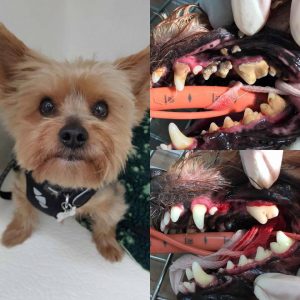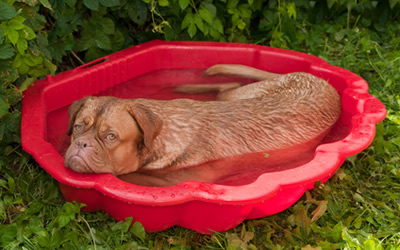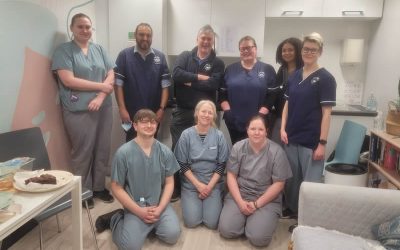At Oak House we know it is important to look after your pet’s teeth.
As well as improving the quality of life for you and your pet, studies show that there are links between dental disease and systemic problems like heart and kidney disease.
Over the next month we will be focusing on promoting dental health for your pets.
Dental disease is one of the most common problems that is seen in both dogs and cats. Studies show that 70% of dog and cats over the age of 3 years have dental disease.
It can be hard to see the signs of dental disease as they can be subtle in the early stages.
 Signs include:
Signs include:
- Bleeding of the gums
- Gingivitis- inflammation of the gums
- Halitosis- smelly breath. Doggy breath is not a normal finding. It’s seen when there is dental disease causing a bacterial infection.
- Gum recession
- Loose teeth
- Difficulty eating or reduced appetite. This is seen only at the end stage and it is often painful long before their appetite is affected.
If caught in the early stages, we can prevent dental disease. The best way of doing this is by regularly brushing your pet’s teeth. This cleans under the gum line, removing the plaque and preventing bacteria from accumulating. Ideally brushing should be done once a day using specific dog and cat tooth brushes and tooth paste.
The key for successful brushing is to start slowly and get your pet used to the toothpaste, building up to using the toothbrush and the toothpaste over a period of several weeks. Use lots of praise afterwards so your pet sees it as a fun game and something to look forward too.
There are also diets, chews and water additives that can be used. A list of dental care products that are recommended by the Veterinary Oral Health Council can be found on their website which can be found here “VOHC”.
Its important to not give them anything too hard to chew. Bones, antlers and hard plastic chews can also cause tooth fractures if they bite them too hard.
Often there is too much dental disease present to treat conservatively and in these cases then we need to treat them with an admission to the clinic and a fuller dental procedure.
This would be carried out under general anaesthetic and would involve x-rays being taken of all the teeth, then probing around the gum looking for gingival pockets, indicating bone loss, damage to the enamel, such as odonto-clastic lesions in cats, and examining for any fractured or chipped teeth.
Dental surgery is often needed in elderly patients and now, with modern anaesthetic techniques and careful pre- anaesthetic assessment using blood testing and cardiac evaluation, we can safely carry out dental procedures in pets of all ages.
If required we would surgically remove teeth that are not viable- using special veterinary locators and our high speed drill hand piece. The remaining healthy ones are scaled with our ultra-sonic hand piece and then polished using our special low- speed hand-piece.
At the subsequent post-op checks we can discuss home care to show you how to slow down or prevent future dental disease.
Autumn Dental Health Promotion
In order to prevent dental disease we are offering free nurse clinics to discuss your pets teeth and to show you how to brush.
Up until the end of October we are running discounts on our dentals:
- £35 off non PHC clients
- an additional £15 discount plus the existing discount for our PHC clients
Simply call reception on 0115 9667920 or book on-line to make an appointment for a free dental check up with the nurse.
Heat Stroke in dogs & other pets
Please be aware of your pets in this summer heat
Our amazing vet Jen and nurse Hannah
We hope you will join us in wishing them well for the future!
March 2023 update
Many thanks for your ongoing support, the Oak House Team



